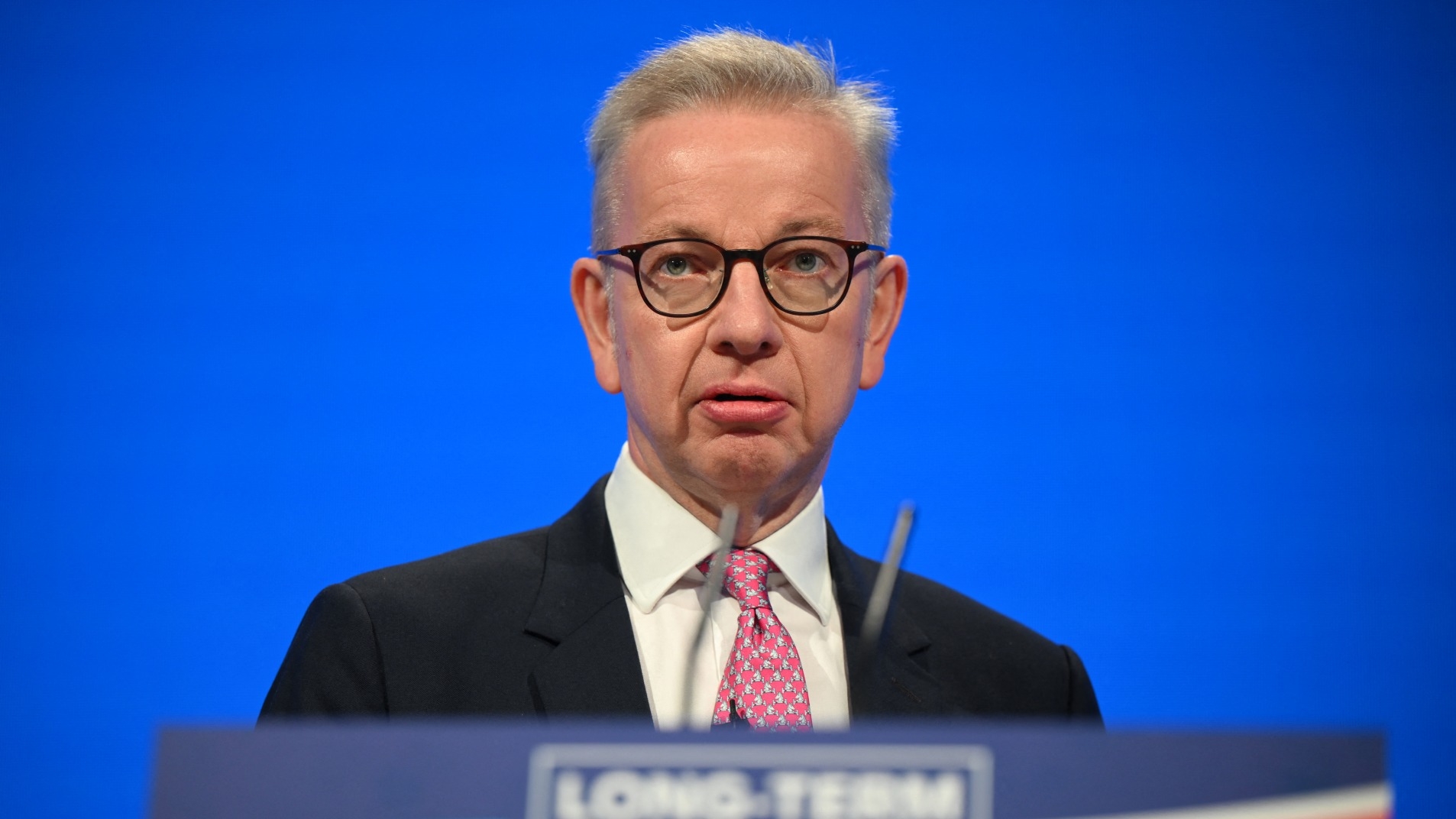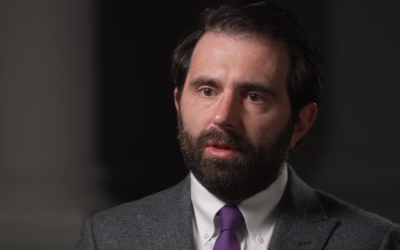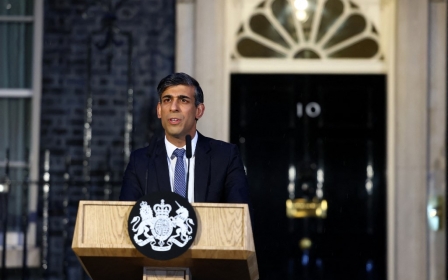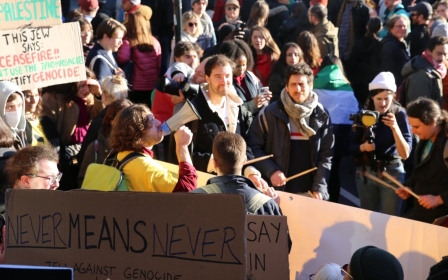UK: Michael Gove facing growing dissent over 'dangerous' extremism plans

The UK government is facing growing opposition over its controversial plan to impose a new definition of extremism, with civil liberties campaigners on Tuesday denouncing a proposed crackdown on civil society groups as “profoundly undemocratic”.
The plans, which are being spearheaded by Communities Secretary Michael Gove, are understood to include measures which would seek to prohibit public bodies from engaging with organisations deemed to be “extremist” under the new definition.
They form part of a new counter-extremism strategy expected to be launched by Gove on Thursday in parliament.
Groups reported to be targeted by the new powers in a draft copy of the plans include the Muslim Council of Britain, the largest representative organisation of Muslims in the UK, and Mend, a Muslim advocacy organisation.
In a statement published on Tuesday, three campaign groups, Liberty, Amnesty International and Friends of the Earth, expressed alarm that the government was considering banning MPs and councillors from engaging with civil society organisations targeted by the new definition.
New MEE newsletter: Jerusalem Dispatch
Sign up to get the latest insights and analysis on Israel-Palestine, alongside Turkey Unpacked and other MEE newsletters
“We believe this undermines our democracy, including the rights to freedom of expression and assembly,” the statement said.
'Any suggestion that the government or political parties should ban all engagement with legal civil society organisations or sections of the electorate, is profoundly anti-democratic'
- joint statement
“Any suggestion that the government or political parties should ban all meetings or engagement with legal civil society organisations or sections of the electorate, is profoundly anti-democratic and sets a dangerous precedent."
The statement cited concerns that the Palestine Solidarity Campaign (PSC), the UK’s largest advocacy movement for Palestinian rights that has been a key organiser of mass protests in London calling for a ceasefire in Gaza, could also be among groups targeted by the powers.
“At a time when civil society and human rights defenders are under attack around the world, the British government should be upholding our core human rights, not seeking to remove them from those with whom it has political disagreements,” the statement said.
Senior government figures, including Prime Minister Rishi Sunak and Gove, have sought to link the issue of pro-Palestinian activism and opposition to Israel's war in Gaza with measures to tackle extremism, repeating claims by pro-Israel advocacy groups that regular protests against the war have made some Jewish people feel unsafe in central London.
Those claims have been rejected by protest organisers and by Jewish groups which have supported and participated in the protests.
'Offensive, ludicrous and dangerous'
The new definition of extremism is reported to be the “promotion or advancement of ideology based on hatred, intolerance or violence or undermining or overturning the rights or freedoms of others, or of undermining democracy itself".
But, in an interview with the Sunday Telegraph newspaper, Gove suggested that the new definition would be used to target organisations in the UK accused of links to the Muslim Brotherhood and Islamist ideology.
Islamism, he said, was a "precise ideology" whose adherents followed the teachings of Egyptian Muslim Brotherhood leaders and scholars Hassan al-Banna and Sayyid Qutb.
The MCB has described reports suggesting that it could be among organisations targeted as “extremist” as “offensive, ludicrous and dangerous”.
“We shall be monitoring developments and will seek to reserve our position legally,” a spokesperson said.
Mend has also criticised the proposed measures, calling them “a desperate act by a dying government… to target human rights and faith-based organisations which have been calling it to account for its racist, unjust and divisive policies”.
On Tuesday, the Guardian reported that Gove would use parliamentary privilege to name several organisations including Cage International, an advocacy organisation focused on the impact of counter-terrorism policies on Muslim communities, but would not refer to larger organisations.
Anas Mustapha, Cage International’s head of public advocacy, told Middle East Eye: "Gove is continuing a decades-long strategy of inciting and exploiting fears against Muslims to build an authoritarian and repressive infrastructure that suppresses any dissent that isn't licensed by Whitehall."
The government is already understood to have been warned by its own lawyers that its latest efforts to label particular groups and organisations as extremist could leave it open to legal challenges. It has previously been forced to apologise and pay damages for falsely accusing people of extremism.
This week it was also urged to reconsider its plans by former home secretaries, former police and army chiefs, and a social cohesion advisor in Gove’s own Department of Levelling Up, Housing and Communities.
'We urge the Labour Party and the Conservative Party to work together to build a shared understanding of extremism and a strategy to prevent it that can stand the test of time'
- letter from three former home secretaries
In a letter published by the Guardian, three former home secretaries, Amber Rudd, Sajid Javid and Priti Patel, who led the department successively from 2016 to 2022, warned that tackling extremism required “as broad a consensus and possible”.
“In the run up to a general election it’s particularly important that that consensus is maintained and that no political party uses the issue to seek short term tactical advantage,” the letter said.
“We urge the Labour Party and the Conservative Party to work together to build a shared understanding of extremism and a strategy to prevent it that can stand the test of time, no matter which party wins an election.”
Other signatories of the letter included Sara Khan, the former commissioner for countering extremism whose current role as a government advisor on social cohesion is based in Gove's department.
A spokesperson for the department declined to say whether Gove had consulted Khan regarding the new extremism strategy.
A general election is expected in the UK later this year, with many polls currently predicting a winning majority for the opposition Labour Party led by Keir Starmer.
Successive Conservative governments have tried – and failed – to reach a legally robust definition of extremism since pledging to introduce a new counter-extremism bill in 2015.
In 2017, then-home secretary Rudd admitted that the bill had not progressed in part because of the inability of the Home Office to resolve “the importance of having a clear legal definition of extremism”.
A government spokesperson told MEE: “We are taking action to ensure that no extremist organisations or individuals are being given a platform by their actions and interactions with government. We will set out further details shortly.”
Middle East Eye delivers independent and unrivalled coverage and analysis of the Middle East, North Africa and beyond. To learn more about republishing this content and the associated fees, please fill out this form. More about MEE can be found here.





